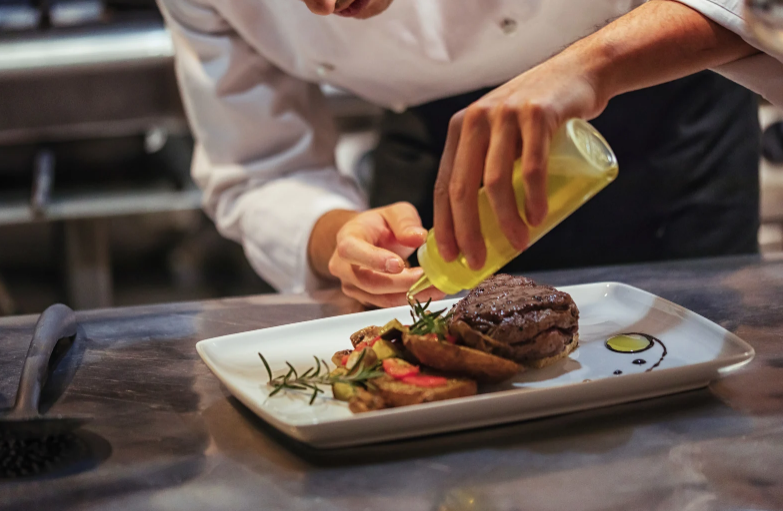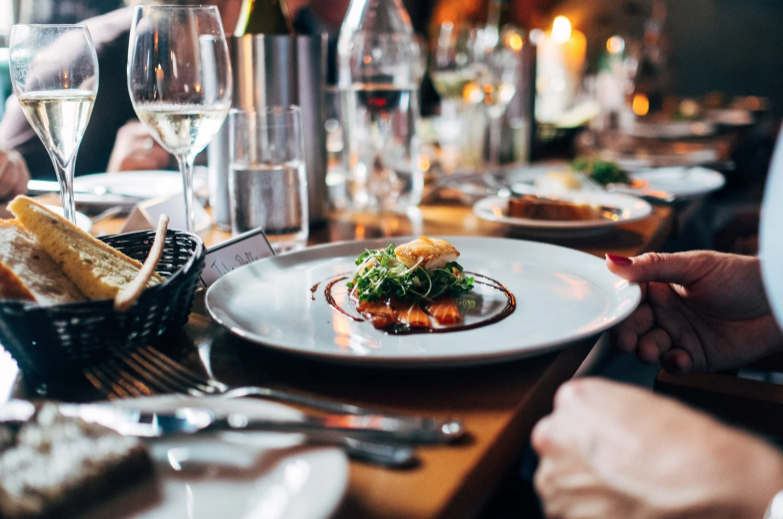This article is a guide for your palate throw the best restaurants in Spain. We explore Spain’s most prestigious and highly-rated restaurants to discover the rich Spanish gastronomy that lies behind the kitchens of the country’s top chefs. Spanish cuisine is globally renowned for its diversity, quality, and creativity. Each year, the Michelin Guide recognizes outstanding restaurants, awarding them coveted Michelin stars. Gastronomic establishments are evaluated based on their level of culinary excellence, ranging from one to three Michelin stars. Here’s a breakdown of what the Michelin stars represent:
- One Michelin star: A very good restaurant in its category.
- Two Michelin stars: Excellent cuisine worth a detour to experience.
- Three Michelin stars: Exceptional cuisine justifying a special journey.
What is the restaurant with the most Michelin stars in Spain?
The Michelin Guide 2023 has awarded 250 restaurants across Spain, reaffirming the country’s culinary excellence. This recognition spans from historic establishments to innovative gastronomic proposals, encompassing a wide variety of styles and cuisines. Next, we discover the best restaurants in Spain.

The Top 10 Michelin Star Restaurants in Spain to delight your taste buds
1. El Celler de Can Roca (Girona)
With three Michelin stars, this restaurant is a global reference point and one of the best restaurants in Spain. The Roca brothers, Joan, Josep, and Jordi Roca, blend technique, creativity, and tradition into a unique gastronomic experience. The success of this family-owned restaurant, which opened its doors in 1967, lies in a symbolic “three-way game”: the balance between Joan’s savory world, Josep’s expertise as a sommelier, and Jordi’s magical sweet universe defended with passion.
2. Arzak (San Sebastián)
A pioneer of Basque nouvelle cuisine, Arzak, with three Michelin stars, offers dishes that fuse tradition and modernity under the direction of Juan Mari Arzak and his daughter Elena. The dishes bear their unmistakable signature with a highly personalized approach. Quality raw materials reign supreme, as they select fresh, high-quality ingredients that influence the excellent outcome of each dish. The Basque spirit permeates every aspect of the restaurant.
3. Akelarre (San Sebastián)
Led by chef Pedro Subijana, renowned for his excellent culinary background and iconic mustache, Akelarre boasts three Michelin stars and is known for its innovative cuisine and spectacular views of the Cantabrian Sea. Its cuisine is constantly evolving, always considering creativity and technique while preserving traditional roots.
4. DiverXO (Madrid)
Chef Dabiz Muñoz leads this three Michelin-starred restaurant, known for its avant-garde cuisine and transgressive approach defined as “hedonistic, indulgent, and creative cooking.” It offers a fun and unique gastronomic experience with a personal touch, taking diners on an emotional rollercoaster where the palate never rests. Its “flying pigs” tasting menu allows guests to journey through various culinary cultures.
5. Azurmendi (Larrabetzu)
This sustainable restaurant, with three Michelin stars, is led by Eneko Atxa and is distinguished by its commitment to the environment and creative cuisine. It is the most sustainable restaurant according to The World’s 50 Best Restaurants 2018, as it is a bioclimatic building that maximizes natural resources and climatic conditions to improve energy efficiency and reduce environmental impact. It is also an integrated space in the surrounding nature, combining sustainable development with the gastronomic heritage for future generations.

6. Martín Berasategui (Lasarte-Oria)
Martín Berasategui holds an impressive total of 12 Michelin stars across various restaurants. His flagship establishment in Lasarte-Oria boasts three stars, in addition to 3 stars at Restaurant Lasarte in Barcelona, 2 at Restaurant M.B. in Tenerife, 1 at Restaurant Oria in Barcelona, 1 at Restaurant Ola Martín Berasategui in Bilbao, 1 at Restaurant Etxeko in Ibiza, and 1 at Club Allard in Madrid.
7. Quique Dacosta (Dénia)
With three Michelin stars, Quique Dacosta in Dénia offers a culinary experience based on Mediterranean flavors and constant innovation. Although Dacosta holds 7 Michelin stars across his six restaurants. Rice in paella is the storyline of his menus and a hallmark that characterizes him, along with grilling and embers. Specifically, Quique Dacosta restaurant ranks among the top 20 in the world, according to the 50 Best guide, for its avant-garde cuisine and incorporation of the latest trends in gastronomy.
8. Atrio (Cáceres)
This restaurant, led by Toño Pérez and José Polo with three Michelin stars, combines a sophisticated menu with an impressive wine cellar. The restaurant is located in the heart of Medieval Cáceres and stands out not only for its cuisine but also for the architectural integration carried out by the award-winning architects Tuñón and Mansilla. Atrio’s gastronomy stands out for its avant-garde touch that also combines with the tradition of Extremaduran products.
9. Cenador de Amós (Villaverde de Pontones)
Jesús Sánchez leads this restaurant with three Michelin stars, known for its creative cuisine respectful of local ingredients. The restaurant is set in an architectural and natural environment, in an eighteenth-century palace house. Chef Jesús Sánchez has been recognized with the highest national and international awards and aims to create a unique experience for diners, thrilling them through their palate.
10. ABaC (Barcelona)
Directed by Jordi Cruz, ABaC holds three Michelin stars and is famous for its signature cuisine and innovative approach. It was nominated as the Best Restaurant in Catalonia in 2011 thanks to the attitude and passion that characterize the chef. It is an elegantly aesthetic restaurant with green garden views that offers a unique and constantly evolving culinary experience.
Trying out restaurants is essential for any aspiring gastronomic journalist aiming to create authentic and valuable content. Gastronomy is a sensory experience that goes beyond mere food tasting. It involves a profound understanding of culture, culinary technique, and the passion each chef puts into their dishes.
These experiences allow gastronomic journalists to develop a finer palate and a deeper appreciation of gastronomy, resulting in more detailed and exciting reviews for their readers.